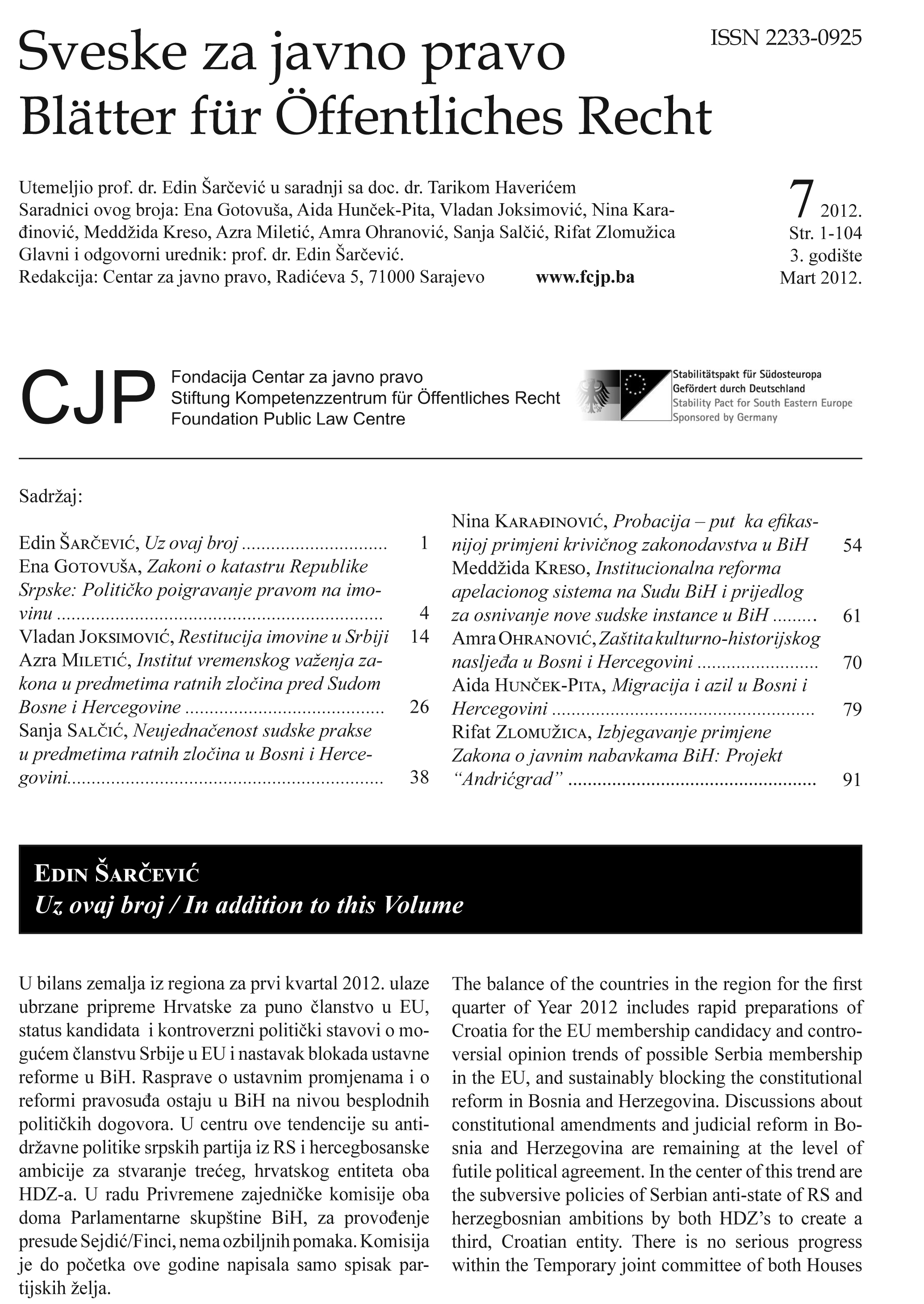Neujednačenost sudske prakse u predmetima ratnih zločina u Bosni i Hercegovini
Unevenness of judicial practice in war crimes cases in Bosnia and Herzegovina
Author(s): Sanja SalčićSubject(s): Law, Constitution, Jurisprudence, Criminal Law, Studies in violence and power
Published by: Fondacija Centar za javno pravo
Keywords: Bosnia and Herzegovina; judicial practice; Law; war crimes; Criminal Code;
Summary/Abstract: Although in continental European countries case law does not present a formal source of law, it is important as a subsidiary source of law and therefore in this context it needs to have a certain level of consistency. In this regard, this paper analyzes the inconsistency of case law in war crime cases in B&H, which is reflected in various courts adopting opposing standpoints when it comes to applicable substantive law – i.e. in the lack of harmonization of legal interpretations of certain criminal justice institutes. These differences are principally manifested in the fact that B&H war crime cases that come before the competent B&H entity courts are mostly based on the implementation of provisions of the Criminal Code of the Socialist Federal Republic of Yugoslavia, while the Court of B&H mostly acts according to the Criminal Code of B&H, due to its jurisdiction ratione materiae to act according to what has been defined as a criminal act by the Criminal Code of B&H and by other B&H laws. It is necessary to apply the standards equally to all those accused for war crimes, and a harmonized interpretation of criminal codes is very important as well, since realizing a guarantee function of criminal law, protection of human rights and the equality of citizens, and the principle of legal security also depend on the stance of the court in question. This paper also analyzes the impact of the decision of the Constitutional Court of B&H in the Maktouf case on the relevant case law of competent B&H courts, as well as the impact of potential de lege ferenda mechanisms on overcoming the issue of inconsistency of case law. Proposals to overcome this include, among others, a conclusion on the necessity of establishing a judicial body that would harmonize the case law in this area on the state level and would ensure both its consistency and a constant consideration of current issues and institutes of case law.
Journal: Sveske za javno pravo
- Issue Year: 3/2012
- Issue No: 7
- Page Range: 38-53
- Page Count: 16
- Language: Bosnian, Croatian, Serbian

